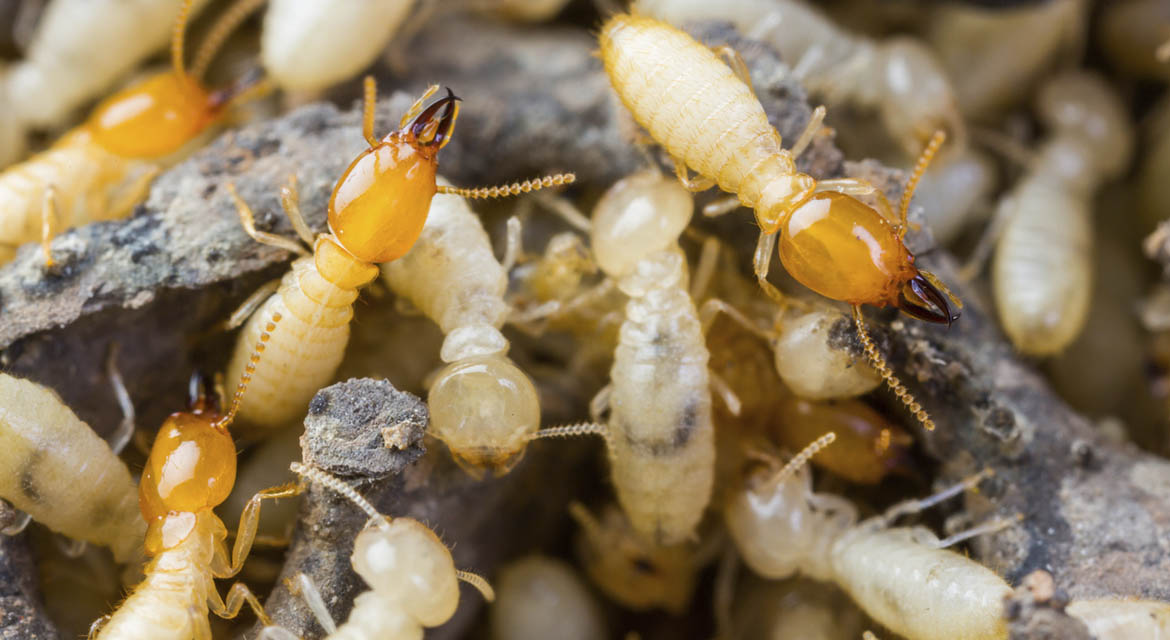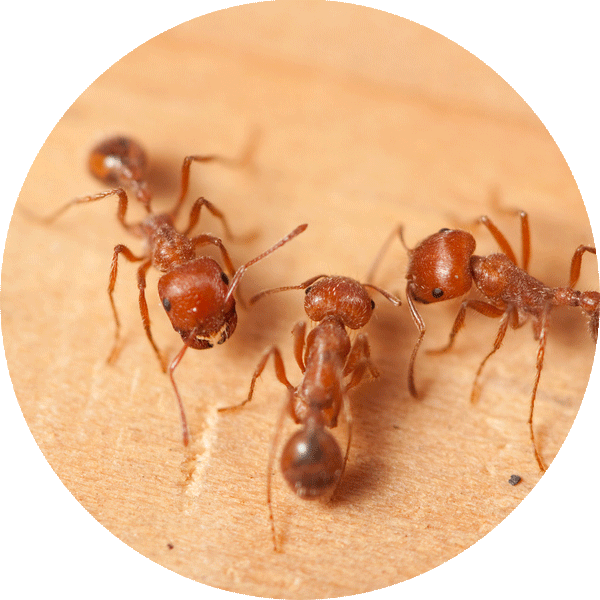
Termite Facts & Information
Termites pose significant risks by causing structural damage to buildings, leading to costly repairs and potential safety hazards. Their presence can also decrease property value, impacting homeowners financially and making it challenging to sell affected properties.
Risks of Termites
Structural Damage
Termites are notorious for causing significant damage to wooden structures. They feed on cellulose-based materials, such as wood, and can weaken the structural integrity of buildings over time. If left untreated, a termite infestation can lead to costly repairs and potential safety hazards.

Financial Impact
Termite damage can result in significant financial losses. Repairing the structural damage caused by termites can be expensive, especially if the infestation is extensive. Additionally, insurance coverage for termite damage is typically limited or nonexistent, meaning homeowners may have to bear the full cost of repairs.
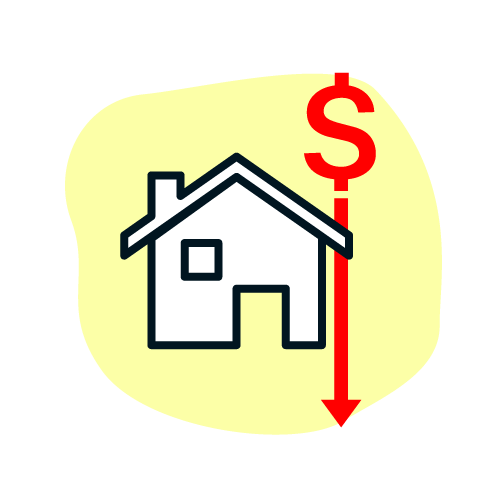
Decreased Property Value
A termite infestation can negatively impact the value of a property. When buying or selling a home, termite damage and the presence of active infestations can discourage potential buyers and lead to lower property valuations. It is essential to address and disclose any termite issues to maintain the value of the property.
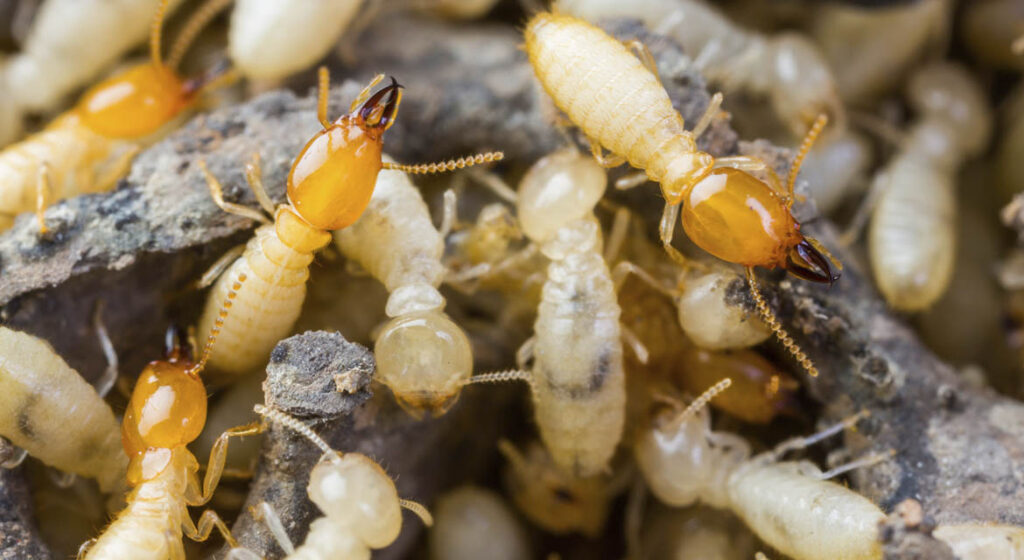
Truly Nolen GUARANTEE
If you’re not completely satisfied, you’ll get a full refund on your most recent service with our 100% money back guarantee.
Common Species of Termites
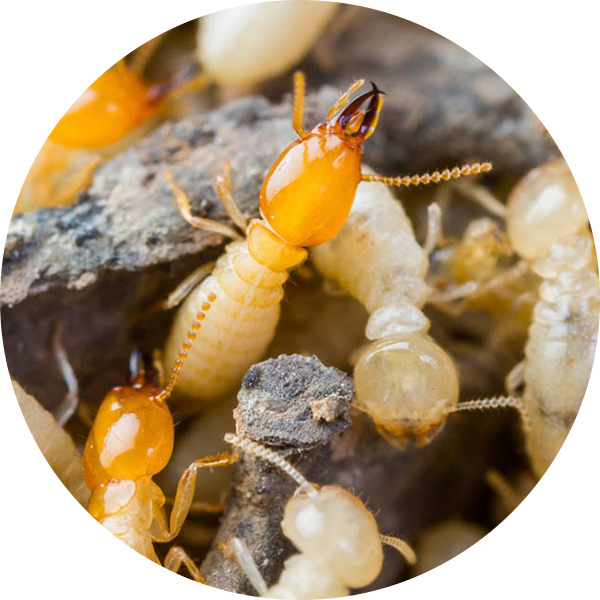
Subterranean Termites
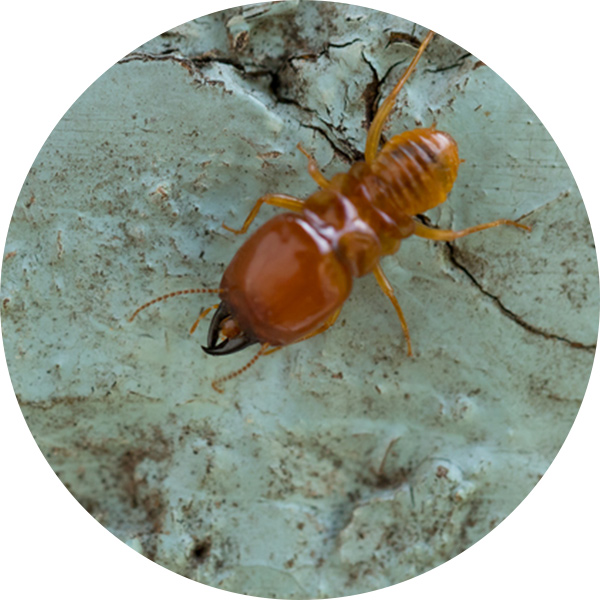
Conehead Termites
How To Identify Termites
While termites may not bite or transmit diseases, their presence can silently wreak havoc on your home, leading to financial devastation that could reach hundreds or even thousands of dollars. These tiny creatures thrive on the very wood that constructs your abode, relentlessly feasting upon it and compromising its structural integrity. Astonishingly, they are responsible for causing over five billion dollars in property damage each year.
To safeguard your home from this relentless menace, proactive prevention is paramount. However, when it comes to termite eradication, it’s best to refrain from DIY attempts. These crafty invaders necessitate the expertise of a pest control specialist, specifically trained to protect your home from termite invasion and swiftly eliminate them if they have already infiltrated your sanctuary. Don’t take chances with these elusive intruders.
Termite Appearance
Termites are small, pale insects with soft bodies and straight antennae. Workers and soldiers typically range from 0.25 to 0.5 inches in length, while reproductive individuals can be up to 1 inch long. Their bodies are usually light-colored, but some species are brown or black.
Termite Habitat
Termites are found in almost every part of the world, except for Antarctica. They live in colonies and create nests in a variety of places, including soil, wood, and mud. Subterranean termites are often found in soil or moist areas near a food source, while drywood termites live inside dry wood and dampwood termites prefer moist wood.
Termite Diet
Termites feed on cellulose, which is found in wood, paper, and other plant-based materials. They can cause significant damage to structures made of wood or other cellulose-based materials, which is why they are considered a pest.
Termite Behavior
Termites are social insects that live in colonies. They have a caste system, with different individuals performing specific roles within the colony. Workers are responsible for foraging for food, feeding the colony, and maintaining the nest. Soldiers are responsible for defending the colony from predators. Queens and kings are responsible for reproduction and maintaining the colony.
Termite Reproduction
Termites reproduce through swarming, which is when reproductive individuals leave the colony to mate and start a new colony. After mating, the queen will lay eggs, which will hatch into new workers, soldiers, or reproductive individuals.
Termite Prevention
Preventing termite infestations involves minimizing potential food sources and moisture in and around your home. This can include fixing leaks, removing standing water, and storing firewood and other cellulose-based materials away from your home. Regular inspections by a pest control professional can also help detect and prevent infestations.
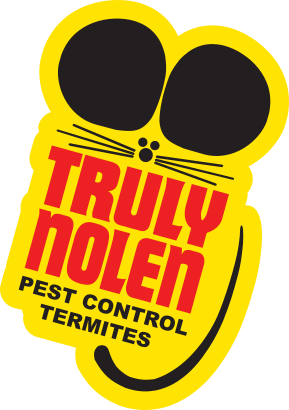
$50 Off Year Round Pest Control
Truly Nolen is a family-owned company with 85 years of experience providing the best pest control. If you’re not completely satisfied, you’ll get a full refund on your most recent service with our 100% money back guarantee.
The Truly Nolen Approach
Environmentally Conscious
We work to minimize our impact on the environment by using naturally occurring materials whenever possible.
Pet Friendly
Truly Nolen uses an Integrated Pest Management (IPM) approach designed with your pets in mind.
100% Money Back Guarantee
If you’re not completely satisfied, you’ll receive a full refund on your most recent service.
How Truly Nolen Gets Rid of Termites
Unmatched in its comprehensive nature, Truly Nolen’s Total Termite Protection Plan covers every aspect of your home or business. Our dedicated technicians concentrate on both the soil and the structure, ensuring complete protection for your property. By seamlessly integrating above and below-ground termite services into one holistic treatment, we safeguard your entire premises with unwavering vigilance. Allow us to exemplify the true essence of termite control, leaving no nook or cranny unattended.
Truly Nolen’s Total Termite Protection Plan is a comprehensive termite control program offered by the company. It is designed to provide ongoing protection against termites and includes the following key features:
- Inspection: The program begins with a thorough inspection of the property to assess any existing termite activity and identify potential risk areas.
- Treatment: Based on the inspection findings, Truly Nolen develops a customized treatment plan. They employ various methods, such as liquid barrier treatments, baiting systems, and localized treatments, to effectively control and eliminate termite infestations.
- Monitoring and Prevention: Truly Nolen’s plan includes regular monitoring to detect any signs of termite activity. They may install monitoring devices strategically around the property to keep a close watch on termite presence and behavior. This proactive approach helps identify and address termite issues before they become major problems.
- Warranty and Protection: The Total Termite Protection Plan typically includes a warranty that provides coverage and protection against future termite infestations. The specifics of the warranty can vary, so it’s essential to review the terms and conditions with a Truly Nolen representative.
- Expertise and Support: Truly Nolen’s termite control specialists have extensive knowledge and experience in dealing with termite infestations. They can provide guidance, advice, and ongoing support to help homeowners protect their properties from termites.
Frequently Asked Questions
Can I treat termites on my own?
While some DIY products exist, effective termite control often requires professional expertise and specialized equipment for thorough elimination and long-term protection. Learn More!
Are termites harmful to humans?
While termites don’t pose direct health threats, their presence can cause significant structural damage and financial implications. Learn More!
How do I know if I have termites?
Look for signs like mud tubes, discarded wings, damaged wood with hollowed-out sections, and droppings resembling wood pellets. Learn More!
How much does termite treatment cost?
The cost varies based on factors like the extent of the infestation, property size, and chosen treatment method. It’s best to request a professional inspection and obtain a customized quote. Learn Move!
How can I prevent termite infestations?
Prevention includes reducing moisture, maintaining proper ventilation, removing wood-to-soil contact, and conducting regular inspections. Learn More!

